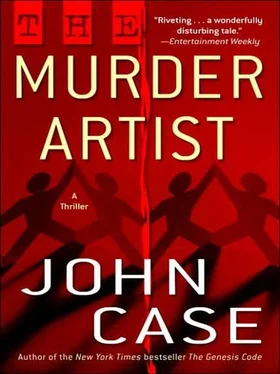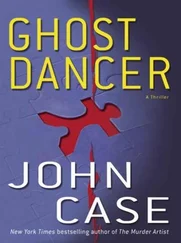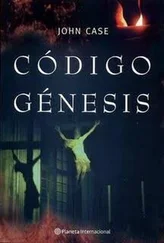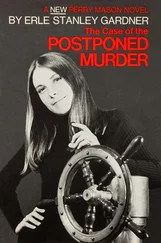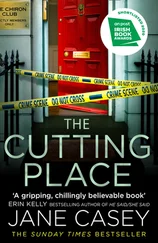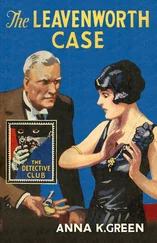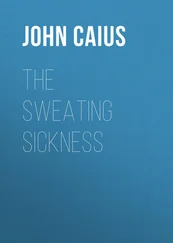“No.”
“Twins. You seek your boys and they are twins. It is for this. Otherwise, I am an old man who does not like to miss his sleep. Twins are very special in vaudoo . Above every other loa – which be the spirits in charge of the whole world, the living and the dead – above all of them, is the Marassa .” He nods.
“The Marassa?”
“Oh, yes, they the twins. They make the rain fall, they make the herbs that heal the sick. The two in one – they symbolize the harmony of the world as it should be, the balance of the earth and the sky, the fire and the water, the living and the dead.”
“The twins.”
“So it is,” Diment says in his mellifluous voice. “So it is this way. The twins not entirely, what you say, friendly, oh, no. They get angry, sometime. They jealous. Things go out of balance. But in vaudoo – twin children in a family, this a thing of great importance. They are” – he searches for the word – “a reminder of the mystery. You must have ceremony for them – this you must do if you find your sons, yes? This you must promise me.”
“Ceremony?”
“In their honor. Every year. You listen now. Every once a year. Christmas, this one possible day, but the celebration must be apart from the Christmas celebration, so that may be not the best choice. January fourth, that a second appropriate day.”
“That’s-”
But he holds up his hand to stop me.
“The third one is the Easter eve, the day before the Christian Easter. If you not have ceremony for the twins, it bring unhappy days.”
“It’s no problem,” I tell him. “We always celebrate. Their birthday is January fourth.”
This stuns him, almost scares him. “You are sent to me. So I may serve the Marassa.” He closes his eyes, mumbles, crosses himself, lets his head fall to his chest. When he opens his eyes again, he looks so tired I ask him if he wants to rest for a while.
“Look, I need to get Pinky’s car back to him,” I tell him. “I can come back later.”
“No, no, no, no.” He draws his open hand down over his face. “I tell you now what I know about Byron. I might know one or two thing. We can hope-” He makes a gesture, his hands rising into the air. “We can hope it help you.”
My mood sinks. It doesn’t sound like he’s got any hard information about Boudreaux’s whereabouts.
We’re interrupted when a woman arrives. She wears a long faded dress and has bare feet. She’s nervous and very deferential to Diment. She holds a white rooster in her arms, confining it in such a way that it does not struggle. Diment makes a little bow in my direction and gets up to inspect the bird. He pulls its wings up and pushes its feathers apart here and there. The bird makes a clucking sound every once in a while and moves its head in little jerks, its red comb wobbling, its bright eyes staring. “It’s good,” Diment says, and instructs the woman to put the chicken into an empty pen. The bird goes inside in a flurry of squawks and feathers. The woman closes the pen by inserting a stick through a double loop of vine.
“She bring this for the sacrifice,” Diment says, when the woman leaves. “She come back later. You are here first.”
My mind vaults to the chicken blood on Kevin’s shirt, the one the police found in my closet.
“You’re going to sacrifice it?” Until Diment spoke of sacrifice, I’d been thinking the hen was there to lay eggs. And the rooster, was – I don’t know – a pet.
Diment nods. “You don’t like this.”
I shake my head as if to dismiss his idea, but he’s right, of course.
“That don’t surprise me. You think it primitive, I’m right?”
“I guess.”
“Sacrifice the core to all worship, go way back, all the way back, I’m thinking. The god or the gods create the entire world and give you life in it. To honor the god, you perform the ritual, you give him back one of his creature, you give the life of thing back to nourish him.
“Sometime, we have hard times. We have drought or the animals fall sick. Yet even then the animal for the sacrifice cannot have disease. Cannot have flaw. So to give the healthy animal back in hard times, that hard to do. But hard times when you need the loa most of all, yes?”
“I understand the idea, but-”
Diment makes a harsh and dismissive gesture, puts his hand on my arm. “Let me ask you one thing: You a Christian man?”
“Sort of.”
“The Christian faith built on sacrifice, you understanding, yes? God ask Abraham sacrifice his son Isaac, then God relent. He take a lamb, instead. He take a lamb instead of Isaac. He take a life. No, he not require the son of Abraham, but God require this of himself . He sacrifice his only son, let him to die up on the cross in the hot sun, spill his own son’s blood, take his own son’s life. Not a chicken, not a bull, not a lamb – his only son. And Jesus, he know ahead of time. Don’t he say at the Last Supper – ‘This is my body, this is my blood.’ The communion – this rite. It’s about sacrifice, no? You drink Jesus blood, you eat his body.”
“You’re right,” I tell him. “You’re absolutely right. But-”
“You still think to kill the chicken – this somehow backward, yes? Let me ask you: How you respect life if you don’t respect death? Let me tell you – you think I a bloodthirsty man, I like to spill the blood?”
“No. But-”
“You live in your head,” Diment says, shaking his own head sadly. “Alex, you must also live in your body.” He thumps his chest. “You must live in here. You must learn to live in here.”
“I live in my body.”
“No. Three hours out of the ground and already you back up here.” He touches his head and sighs, a deep, fatigued sound.
“I’m sorry.”
He shakes his head.
“I think maybe Byron still practices sacrifice,” I tell him. “He left one of the boys’ T-shirts at my house, soaked in blood. It made the police think I’d killed my sons… until they tested the blood.”
“Byron – he like to kill things, yes?”
I don’t know what to say.
He holds out a hand toward me in a gesture of… benediction. “No. Byron… like the owl or the panther.” He shakes his head. “He hunts, he spill blood for his own self, to slake his own thirst. I try to teach him how to use that, but…” He shakes his head.
“What do you mean?”
“That dog,” Diment says. “He come my way, about that time. I tell him that dog was a waste. I tell him, ‘you piss away your power, boy, you got nothin’ left.’ And he ask, what power is that? So I tell him: the power you get when you put the hurt on things. The power you get when creatures be dyin’. The power of the sacrifice, yes?”
“And what did Byron say?”
Diment shrugs. “He asked me to teach him.”
“About what?”
“Magic.”
“Like card tricks?”
Diment shakes his head. “No, no, no. He already know that kind of thing. Byron – he could make you look the wrong way, every time. He wanted to know about the Mysteries. He wanted to know about the sacrifice, what we call the ‘real magic.’”
“And you could teach him that?”
“Oh, yes. But I can’t talk of this with you. You don’t understand. You don’t even understand your own faith about sacrifice. I tell you this: Something look like magic, this not always so.” He taps his temple. “You can’t see what happen, you can’t see the true cause.”
“But you could talk about it with Byron?”
He nods. “I could teach him. I did teach him.”
“Like what? What did you teach him?”
“I teach him the loa, the signs and the meanings, the sacrifice, the dance, everything to bring the power of the other world into this world. How to help the spirit move on when somebody die. How every spirit have a place in this world, how to get the spirit come here without they hurt you. How to make the juju, the mojo, the veve . How to do every kind of thing I know how to do. Even how to get the spirit on your side to put the hurt on someone. I teach Byron everything I know. I teach him the herbs and leaves. And he use that to kill.”
Читать дальше
